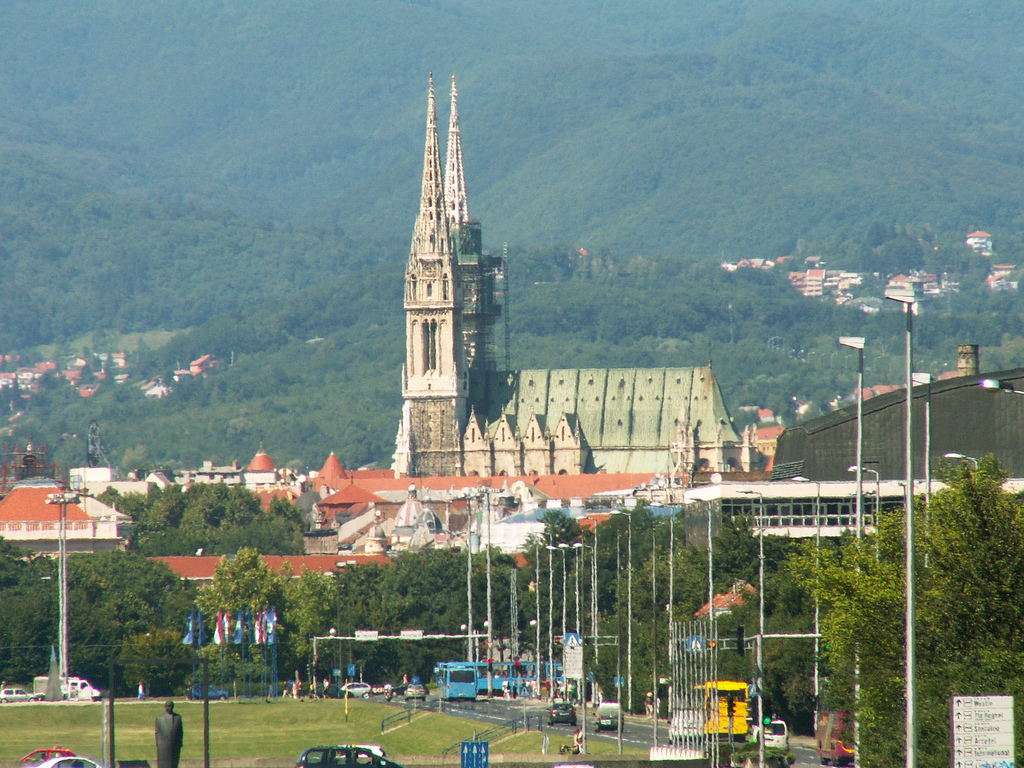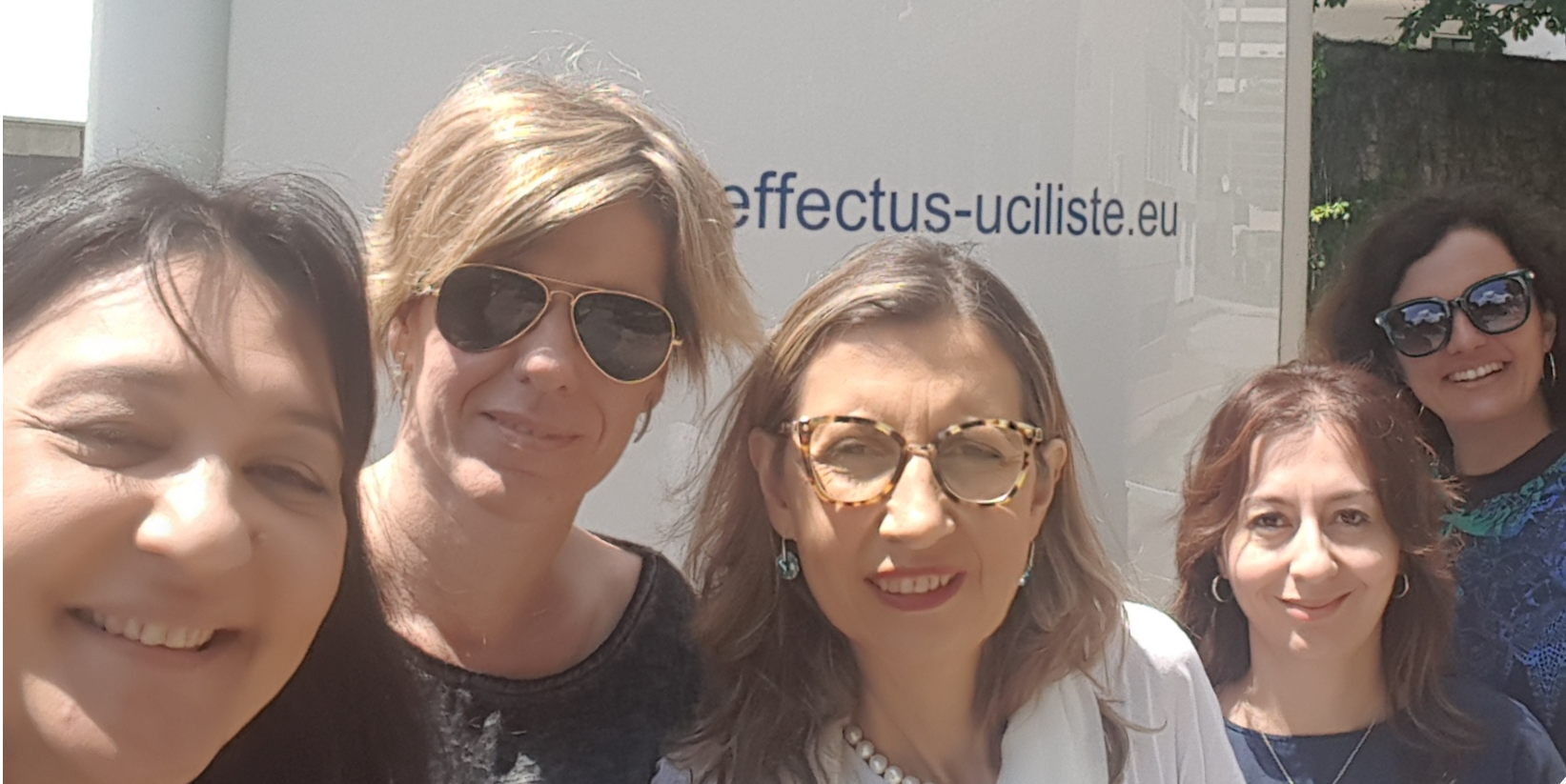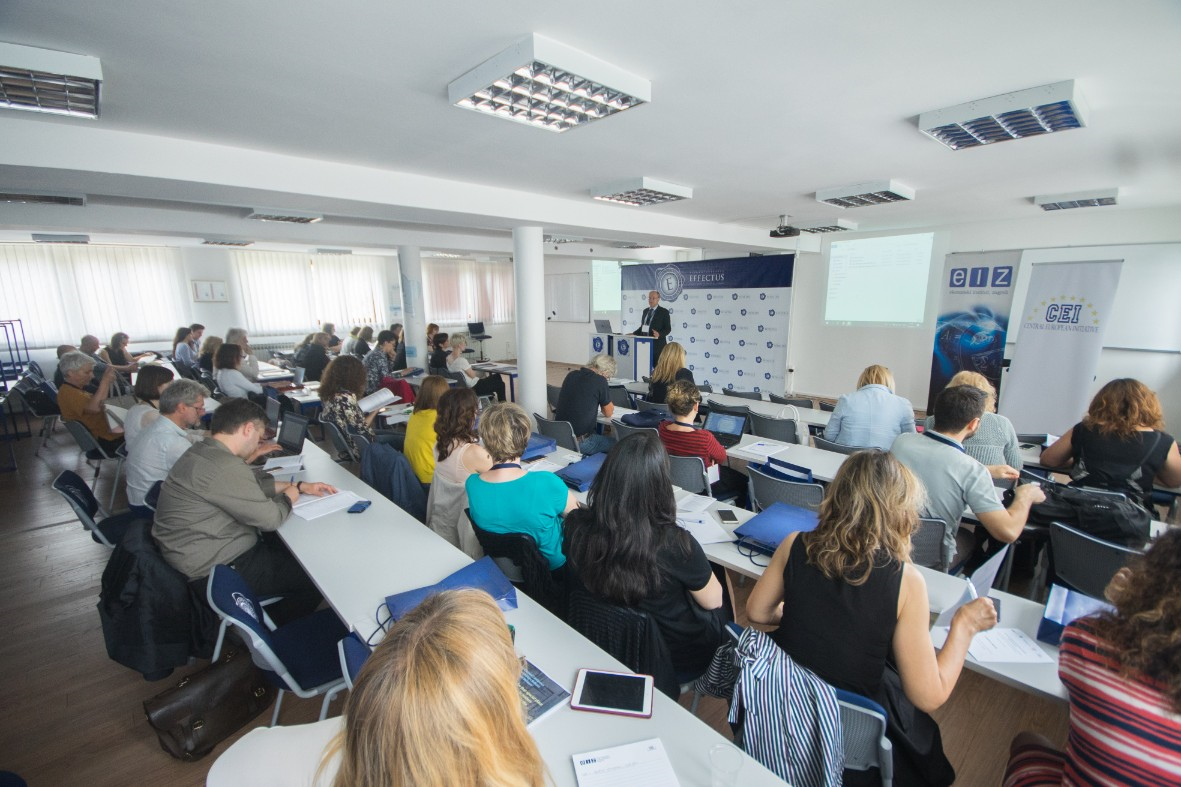YOUMIG - ‘Youth migration’ topic at Western Balkan migration conference
12-06-2018
The Institute of Economics in Zagreb, a member of the WB-MIGNET network, hosted a conference in May in cooperation with the University College Effectus for Law and Finance and The Institute for Migration and Ethnic Studies, both also located in Zagreb. The third WBMNC conference was entitled "A search for that special place under the sun in modern Europe: migration in the twenty first century" and it was heldin Zagreb, Croatia, on May 25–26, 2018.

The aim of the conference was to bring together scholars, policy-makers and advocates and create a forum for the exchange of knowledge and discussions on the issues that surround contemporary migration research and policy in and out of the region. Participants vowed to challenge existing models and discourses for understanding migration, to address current policy challenges and to offer solutions which result in the promotion of modern phenomena like mobility and circular migration, as well as better integration models. A broad range of topics were addressed using a multidisciplinary approach.
 Vesna Lukić and Jelena Predojević-Despić, Institute of Social Sciences from Belgrade, Serbia, made a contribution to the conference focusing on youth emigration from Serbia, which is a subject covered by the YOUMIG project. They discussed youth emigration as a specific developmental challenge with numerous implications, while aiming to emphasise also the role of youth as a resource. The researchers pointed to the need for developing adequate multi-level governance responses in order to transform youth migration from a challenge to an opportunity.They also presented operational and institutional cooperation within the YOUMIG project as an example of strengthening the capacity of local community actors in managing youth migration, through dialogue between research, statistical and state institutions. For example, the work within YOUMIG involves dialogue with stakeholders and decision-makers at the local level at several stages and one of the outcomes of the project will be the publication of recommendations and strategies for establishing such multi-level governance answers as described above.
Vesna Lukić and Jelena Predojević-Despić, Institute of Social Sciences from Belgrade, Serbia, made a contribution to the conference focusing on youth emigration from Serbia, which is a subject covered by the YOUMIG project. They discussed youth emigration as a specific developmental challenge with numerous implications, while aiming to emphasise also the role of youth as a resource. The researchers pointed to the need for developing adequate multi-level governance responses in order to transform youth migration from a challenge to an opportunity.They also presented operational and institutional cooperation within the YOUMIG project as an example of strengthening the capacity of local community actors in managing youth migration, through dialogue between research, statistical and state institutions. For example, the work within YOUMIG involves dialogue with stakeholders and decision-makers at the local level at several stages and one of the outcomes of the project will be the publication of recommendations and strategies for establishing such multi-level governance answers as described above.
In the conference opening plenary speech Russell King, University of Sussex, talked about the evolving complexity of European migration patterns. On the basis of the review of existing migration studies in Europe he introduced the term ‘onward migration’ in the context of fragmented and fluid mobilities. The expression refers to a strategic choice to onward migrate to a subsequent destination after a certain length of time spent in the destination of first choice. An example of this is the emigration of young Albanians who left for Greece after the collapse of communism in their country, and together with their children born in Greece continued their migration route to the UK at the time of the EU’s financial crisis. Mr King explained that onward migration to the UK is mainly driven by similar reasons as much of contemporary migration: the need to find reasonably well-paid work, and for the younger onward migrants the chance to access further higher education (e.g. a Master’s degree) and to build better career and job prospects.
Aija Lulle, University of Eastern Finland, discussed the concept of European peripheries. She emphasised the need for extending the focus of migration research to the peripheries of migration systems, as well as making better use of the potential that lies in the diaspora and emigrant population, which is at the intersection of internal and foreign affairs when it comes to governance.
Ferruccio Pastore, International and European Forum on Migration Research in Turin, held the final plenary speach on overlapping economic and geopolitical crises, seeing them as an opportunity and challenge for theoretical/methodological innovation in migration and integration studies. In this context he talked about changing integration patterns in the European migration system.
The analysis of emigration trends from the countries of the Western Balkan Region and the calls for sustainable policy answers for mitigating the negative implications of the emigration of a young and skilled labour force were in the focus of several papers. The emigration intentions of students were also mentioned.

Dunja Potočnik and Mirjana Adamović, Institute for Social Research, Zagreb, analysed yet-to-be-published Shell Youth Study results on emigration intentions for Croatian youth. The research results show that the socio-economic status of young people in Croatia is deteriorating, making young people more prone to long-term migration.
Saša Bozić, University of Zadar, and Simona Kuti, Institute for Migration and Ethnic Studies, Zagreb, Croatia, pointed out that the role of existing and emerging transnational social spaces in facilitating migration has been regularly neglected in the discussions on the reasons for growing emigration. They presented how Croatian migrants are actively involved in building and sustaining transnational social spaces, which essentially means that people belong to multiple societies simultaneously, by way of building connections and an identity without necessarily having physical residence in one or more of those places.
Martina Bofulin and Sanja Cukut Krilić, Research Centre of the Slovenian Academy of Sciences and Arts, outlined the importance of access to information for migrants. They emphasized that effective and efficient provision of information to migrants is of crucial importance for their future integration and empowerment in the countries of arrival. They presented work completed as part of the transnational INTERREG project DRIM, which is a sister project of YOUMIG, and the two projects have been sharing information since the start of this year.


Text by Jelena Predojević-Despić and Vesna Lukić, YOUMIG partner ISS, Belgrade
